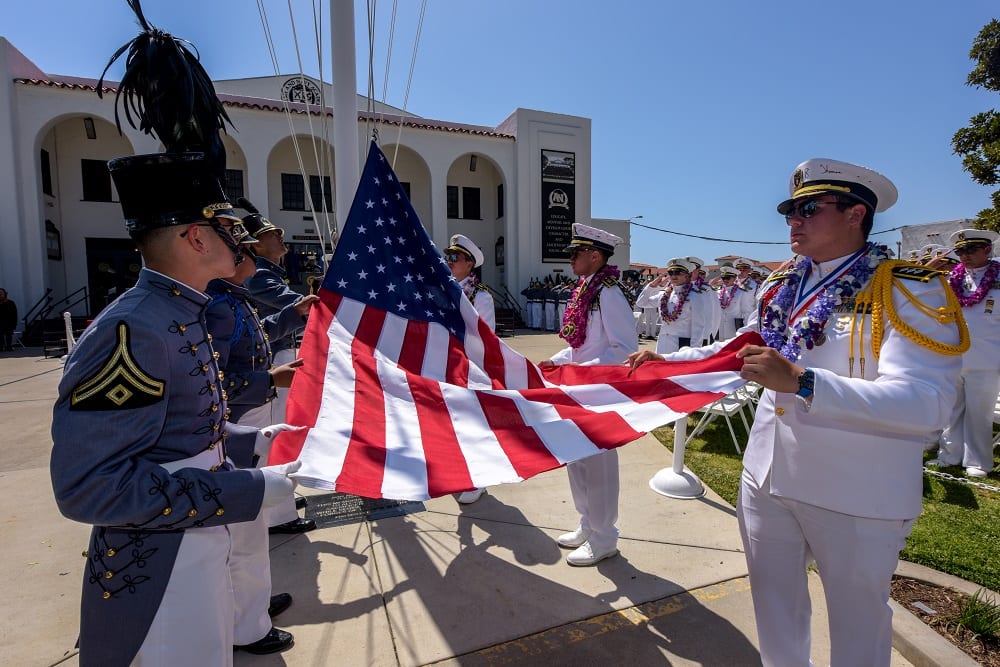Key Takeaways
- Find out how manners and etiquette shape character and leadership
- Learn why manners are uncommon in today’s society
- Explore the principles of etiquette made famous by Emily Post
- Discover tips to develop better manners

How Manners Shape Leadership and Character
Good manners and proper etiquette are important and matter more than ever in our society, whether it is in academic classrooms, social settings, at home, or in public places.
By modeling good character and our values through our manners, we can all have a strong impact on respect and civility in society. In this article, you will learn about the importance of manners and etiquette, why manners are uncommon these days, and receive some tips for good manners and proper etiquette to apply at home or at school.
This article may even prompt you to explore boarding schools and military schools in the U.S, where codes of conduct, honor codes and manners are taught and reinforced.
Why are Manners Uncommon These Days
- Lack of Structure and Accountability – A lack of structure and daily routines has had an impact on family life and on education, thereby reducing role models and mentorship.
- Lack of Guidance – In recent decades, teaching good manners in school and at home has often been ignored, resulting in a growing number of youth not learning the basic principles and practices of good manners and proper etiquette.
- Generational Shifts – While some lay blame on shifts in family dynamics, others tend to blame younger generations. However, as a society, we have all contributed to the way people employ good manners and proper etiquette.
- Lack of Training – Despite the lack of general training, there are some private school programs that help teenagers develop good manners. A case in point, at the Army and Navy Academy, they offer leadership education training (LET) and character development programs to boys in grades 7-12. They even have a gentleman’s guide to good manners that students are expected to follow.
- Lack of Character Development – In public schools, and even in many private schools in America, there is often a lack of emphasis on values, virtues and character development. In addition, it is rare for schools to teach real world skills like good manners or offer etiquette training. Learn more about common myths and misunderstandings about military schools, where virtue development is integral.
- Changes in Communications – As we all know, social media allows people to feel more anonymous, sometimes resulting in inappropriate comments and a lack of good manners. The increased use of social media has often resulted in manners falling by the wayside.
- Digital Influences on Youth – Unfortunately, video and game channels, social media, as well as film and television have all played a part in the decline of manners, where a lack of manners is often witnessed and reinforced. To counter technology dependence and reinforce good behavior and manners online, some boarding schools like Army Navy Academy have very specific guidelines for device use, codes of conduct and safety.
Principles of Etiquette
“To us, etiquette—a word on so many of our books!—is made up of two parts. There are manners; lots of them, in fact. Books and webpages full of them! “Please” and “thank you,” holding doors, chewing with our mouths closed, dressing appropriately, shaking hands—these are all manners. They are important because they give us confidence, allow our focus to be on the substance of our interactions, and they tell us what to do and what to expect others to do in return. Plus, they’re nice.
But etiquette also expresses something more, something we call “the principles of etiquette.” Those are consideration, respect, and honesty. These principles are the three qualities that stand behind all the manners we have. They are timeless and cross cultural boundaries, unlike manners, which can change over time and differ around the world.” – Emily Post Etiquette
- Respect – Respect is demonstrated by controlling yourself and by showing respect for yourself and others. It is important to show openness to various perspectives and monitor your choice of words. This is true for in-person remarks as well as online comments and use of digital imagery. Make a practice to learn and follow good “netiquette” everywhere you go.
- Consideration – Consideration is about being thoughtful in both words and actions. By showing empathy for another person, the key to consideration is thoughtful behavior, which can lead to helping others, showing appreciation or offering praise.
- Honesty – Honesty is all about integrity. This means telling the truth and avoiding even white lies. It is also about being sincere. To state something in a way that will avoid embarrassment or pain to a person shows empathic awareness and emotional intelligence. At Army and Navy Academy, for instance, there is an honor code of “do not lie, cheat or steal, nor tolerate those who do.”
Helping Your Teen Learn Respect and Good Etiquette
- Eat meals together where you can model good manners
- Use proms as a way to engage in conversations about good manners and etiquette.
- Create a family value system that includes: respect, consideration and integrity.
- Establish family rules for device use and set an example
FAQs:
- What’s the difference between manners and etiquette? While some sources differ on this topic, we relied on Emily Post to articulate the differences. Principles of etiquette act as a foundation for the values that are the underpinnings of good manners.
- How do good manners help students become better leaders? Leaders of good character show integrity, respect, and consideration. They follow both the underlying principles of etiquette but put their values into action through good manners.
- Why does the Army and Navy Academy emphasize manners and character? The academy is dedicated to educating and developing young men of good character. They enter as boys, but mature into tomorrow’s leaders through the core principles and practices of proper etiquette and good manners. Values of honor, respect, integrity, compassion and gratitude are instilled in high school and middle school students.
- How can parents teach manners at home? Most significantly, act as a role model, ask your teen questions about manners and etiquette, and establish some basic household rules that everyone follows.
Explore a boarding school that teaches manners and etiquette: Check out Army and Navy Academy, a college prep school geared for boys, grades 7-12. Request information or call 760.729.2385.

Candace Heidenrich is the CEO of Aperture Advisory Associates, where she works with private secondary and higher education leaders to strengthen programs and practices. She founded Aperture in 2018 after more than a decade in a senior administrative role at a boarding school in California. Additionally, she held faculty and chair positions at private schools and colleges in Los Angeles and Ojai. Her background also includes director and executive level positions with start-ups and Fortune 500 corporations.
While earning her B.A. in Education and Humanities in the Lawrence Henry Gipson Scholar program, she studied abroad at Oxford before pursuing her master’s at the University of California, Santa Barbara. A frequent speaker at national conferences, she is a recognized thought leader and authority on enrollment management and marketing best practices.
